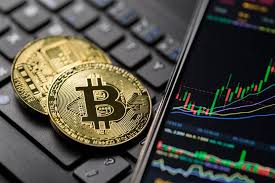
Maximizing Profits: The Importance of Crypto Trading Execution Speed
Your success in crypto trading largely depends on execution speed. In this fast-paced digital marketplace, trades can be lost or won in a matter of milliseconds. The Crypto Trading Execution Speed visit website rapidly evolving nature of cryptocurrency markets means that traders must understand the significance of execution speed and how it can impact overall trading performance.
Understanding Execution Speed
Execution speed refers to the time it takes for a trade order to be executed after it has been placed. This includes the time taken to send an order, receive confirmation, and execute the transaction on the blockchain. The faster the execution, the less likely a trader is to experience slippage, which occurs when an order is executed at a less favorable price than intended.
The Impact of Latency on Trading
Latency is the delay before a transfer of data begins following an instruction for its transfer. In crypto trading, latency can be introduced at various points, including the trader’s local network, the broker’s systems, and the blockchain itself. High latency can result in significant disadvantages, especially in a market where prices can move rapidly.
1. Slippage
Slippage refers to the difference between the expected price of a trade and the actual price. In high-frequency trading environments, where opportunities are time-sensitive, even a slight delay can lead to a loss. Traders need to ensure latency is minimized to avoid slippage, which can erode profits and lead to costly errors.
2. Order Types and Execution Speed
Different order types have varying impacts on execution speed. Market orders prioritize speed over price, making them susceptible to slippage, while limit orders allow traders to set their desired prices but may result in delayed execution. Understanding these differences is key for traders wanting to optimize their strategies based on execution speed.
3. High-Frequency Trading (HFT)
High-frequency trading relies heavily on rapid execution speeds and sophisticated algorithms. HFT firms leverage advanced technology to ensure their trading strategies can capitalize on even the smallest price discrepancies quickly. By doing so, they dominate the market and amplify the importance of execution speed in achieving profitability.

Factors Influencing Execution Speed
Several factors can influence the execution speed of crypto trades, including:
- Trading Infrastructure: The networks and systems upon which trading platforms operate play a critical role in execution speed. Low-latency connections and optimized infrastructure are essential for fast executions.
- Geographical Location: The physical distance between traders and exchange servers can affect latency. Traders in closer proximity to exchange data centers often experience faster execution speeds.
- Order Routing: The path an order takes to reach the market can influence latency. Efficient order routing algorithms can help mitigate delays.
- Market Conditions: During periods of high volatility, execution speeds may be affected as exchanges struggle to process a surge in high volume transactions.
Choosing the Right Trading Platform
Given the importance of execution speed, choosing the right trading platform can make a significant difference. Here are some key considerations:
- Latency Monitoring: Look for platforms that offer tools to monitor latency and provide transparency about their execution speeds.
- Execution Quality: Research how a platform executes orders. Some offer features like smart order routing which can enhance execution speed.
- Feedback from Other Traders: Community feedback and reviews can provide insights into the performance of the trading platform concerning execution speed.
Using Technology to Enhance Execution Speed
Traders can leverage technology to improve their execution speeds. Some recommendations include:
- Direct Market Access (DMA): This allows traders to place orders directly into the market instead of through a broker, reducing time delays.
- Colocation Services: Many advanced traders take advantage of colocation services where their trading systems are hosted physically close to the exchange servers, minimizing latency.
- Algorithmic Trading: Using trading bots or algorithms can facilitate quicker decisions based on pre-defined criteria and lower human error, ensuring faster execution.
The Future of Crypto Trading Execution Speed
As the cryptocurrency market matures, the demand for faster execution speeds will continue to grow. Innovations in technology, such as Ethereum’s transition to proof-of-stake with Ethereum 2.0, aim to increase transaction throughput and reduce confirmation times. These advancements will facilitate quicker trade executions and offer traders the edge they need to succeed in an ever-competitive marketplace.
Conclusion
In the world of crypto trading, execution speed isn’t just a technical feature; it’s a critical factor that can make or break trading strategies. By understanding how execution speed works and implementing strategies to optimize it, traders can minimize slippage, seize opportunities more effectively, and ultimately enhance their profitability. As technology continues to advance, keeping an eye on execution speed will become increasingly vital for traders looking to stay ahead of the curve.
